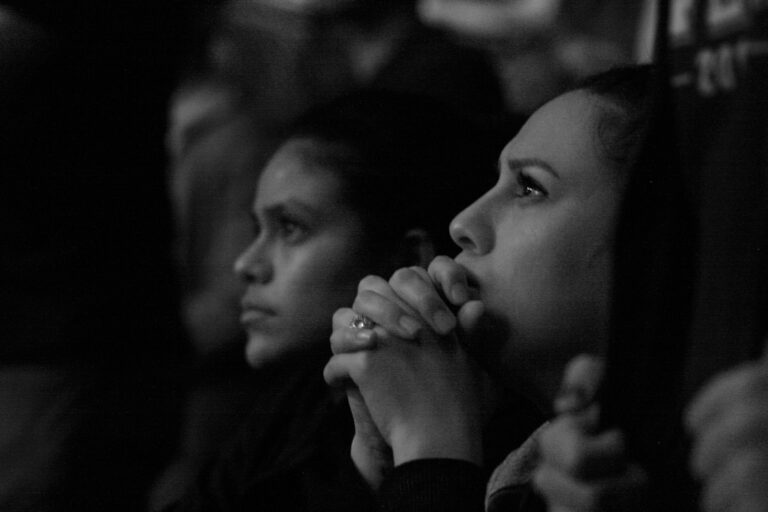Living Your Standards: The Key to Effective Leadership
The Problem with Holding Others Accountable to Our Standards
Importance of standards and beliefs in leadership development
Leadership development is an ongoing process that involves acquiring and refining skills, knowledge, and behaviors that enable individuals to lead effectively. One of the key components of leadership development is the establishment of personal standards and beliefs. Personal standards and beliefs are the guiding principles that shape our thoughts, attitudes, and behaviors. They are the foundation upon which we build our leadership style, our decision-making process, and our approach to problem-solving.
The problem of holding others accountable to our personal standards and beliefs
However, there is a common problem that arises when we hold others accountable to our personal standards and beliefs. We often assume that our standards and beliefs are universal, and we expect others to conform to them. We become frustrated when others do not meet our expectations, and we may even feel offended or disrespected. This problem is especially prevalent in personal and professional relationships, where differences in culture, values, and beliefs can create friction and misunderstanding.
The consequences of this problem in personal and professional relationships
The consequences of holding others accountable to our personal standards and beliefs are significant. It can lead to resentment, tension, and conflict in personal and professional relationships. It can also create a sense of superiority or entitlement, which can undermine our credibility and influence as leaders. When we hold others to our standards and beliefs, we are not respecting their autonomy, their perspective, or their unique experiences. This can limit our ability to build rapport, trust, and collaboration with others, which are essential elements of effective leadership.
In the following sections, we will explore the concept of personal standards and beliefs in greater detail, and discuss the importance of recognizing and respecting the standards and beliefs of others. We will also provide practical tips for living our own standards, and examine the benefits of this approach in leadership development.
Understanding Personal Standards and Beliefs
Defining personal standards and beliefs
Personal standards and beliefs are the principles, values, and morals that guide our actions, decisions, and behaviors. They are the internal compass that directs us toward what we believe is right and just. Personal standards and beliefs can be influenced by a variety of factors, including family upbringing, cultural background, personal experiences, and education.
Factors that shape our standards and beliefs
Family upbringing is one of the most significant factors that shape our personal standards and beliefs. Our parents and guardians instill in us a set of values and beliefs from a young age, which can have a lasting impact on our worldview. Cultural background is another important factor, as it can influence our attitudes toward social norms, gender roles, and ethical practices. Personal experiences, such as traumatic events, life-changing experiences, and accomplishments, can also shape our personal standards and beliefs. Finally, education plays a critical role in shaping our standards and beliefs, as it exposes us to new ideas, perspectives, and worldviews.
The role of self-awareness in recognizing personal standards and beliefs
Self-awareness is a critical element in recognizing our personal standards and beliefs. It involves the ability to introspect and reflect on our thoughts, emotions, and behaviors, and to identify the values and beliefs that underlie them. Self-awareness allows us to recognize our biases, assumptions, and limitations, and to develop a more objective and open-minded approach to our interactions with others.
Personal standards and beliefs are an essential aspect of leadership development. They guide our decisions, behaviors, and actions, and influence our relationships with others. Understanding the factors that shape our personal standards and beliefs, and developing self-awareness around them, is key to building more effective and meaningful relationships with others.
The Pitfalls of Holding Others Accountable to Our Standards
Assumptions about others’ standards
One of the main pitfalls of holding others accountable to our personal standards and beliefs is making assumptions about their standards. We often assume that our standards are universal, and that others should naturally conform to them. This assumption can lead to misunderstandings, conflict, and a breakdown of communication. When we assume that others share our standards, we fail to recognize the diversity of perspectives and experiences that exist in the world.
The impact of holding others accountable to our standards
Another pitfall of holding others accountable to our personal standards and beliefs is the impact it can have on our relationships with others. When we hold others accountable to our standards, we can create a sense of resentment or disrespect, which can damage our relationships with others. It can also create a power dynamic where we assume a position of superiority or entitlement, which can undermine our credibility and influence as leaders.
Why it’s important to recognize and respect others’ standards
Recognizing and respecting the standards and beliefs of others is critical to building effective and meaningful relationships. It involves acknowledging that others may have different perspectives, experiences, and values, and that these differences should be respected and celebrated. When we recognize and respect the standards of others, we can build rapport, trust, and collaboration, which are essential elements of effective leadership.
Holding others accountable to our personal standards and beliefs is a common pitfall in leadership development. It can lead to misunderstandings, conflict, and a breakdown of communication, and can damage our relationships with others. Recognizing and respecting the standards and beliefs of others is critical to building effective and meaningful relationships, and is essential for effective leadership.
Living Our Own Standards
The importance of focusing on our own standards
To avoid the pitfalls of holding others accountable to our personal standards and beliefs, it is important to focus on living our own standards. This involves setting clear expectations for ourselves, and committing to living by our own principles, values, and morals. By focusing on our own standards, we can become more self-aware, more authentic, and more effective as leaders.
Tips for living our own standards
Living our own standards requires a deep sense of self-awareness, commitment, and discipline. Here are some tips for living our own standards:
-
Clarify your values: Take the time to identify your core values, and the principles that guide your decisions and behaviors. Write them down, and refer to them often to keep them top of mind.
-
Align your actions with your values: Make a conscious effort to align your actions with your values. When faced with a decision or a challenge, ask yourself: “How does this align with my values?”
-
Take responsibility for your actions: When you make a mistake or fall short of your own standards, take responsibility for your actions, and learn from your mistakes. Don’t blame others or make excuses.
-
Develop self-discipline: Living by your own standards requires self-discipline and self-control. Practice habits that promote self-discipline, such as setting goals, creating routines, and focusing on the long-term.
-
Be open-minded: While it is important to live by our own standards, it is also important to remain open-minded and receptive to new ideas, perspectives, and experiences. Strive to learn from others, and be willing to adjust your own standards as needed.
The benefits of living our own standards
Living by our own standards has many benefits, both personally and professionally. It promotes self-awareness, authenticity, and personal growth. It also fosters a sense of integrity and credibility, which can enhance our influence and impact as leaders. When we live by our own standards, we become more effective in our interactions with others, as we are able to communicate our values and principles clearly and authentically.
Living by our own standards is an essential component of effective leadership. It involves setting clear expectations for ourselves, and committing to living by our own principles, values, and morals. By focusing on our own standards, we can become more self-aware, more authentic, and more effective as leaders.
Focusing on Your Own Standards for Better Leadership
The importance of recognizing personal standards and beliefs
In this article, we have explored the concept of personal standards and beliefs in leadership development. We have discussed the importance of understanding our own personal standards and beliefs, and recognizing the standards and beliefs of others. We have also examined the pitfalls of holding others accountable to our personal standards and beliefs, and provided practical tips for living our own standards.
Focus on living our own standards
As leaders, it is important to focus on living our own standards, rather than trying to impose our standards on others. By living our own standards, we can become more self-aware, more authentic, and more effective in our interactions with others. We can also enhance our influence and impact as leaders, as we are able to communicate our values and principles clearly and authentically.
The benefits of this approach in leadership development
Recognizing personal standards and beliefs is essential for effective leadership development. When we focus on living our own standards, we become more self-aware, more authentic, and more effective in our interactions with others. We also build more meaningful and productive relationships with others, based on mutual respect and understanding. By embracing this approach, we can become better leaders, and make a positive impact on those around us.
In conclusion, recognizing personal standards and beliefs is a critical component of effective leadership. By focusing on living our own standards, and respecting the standards of others, we can build more effective and meaningful relationships, and make a positive impact on the world around us.







